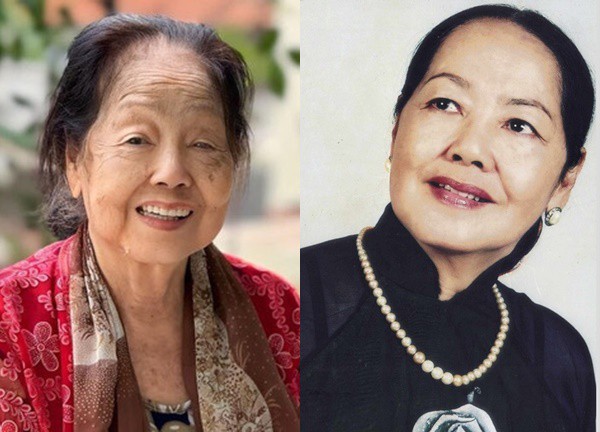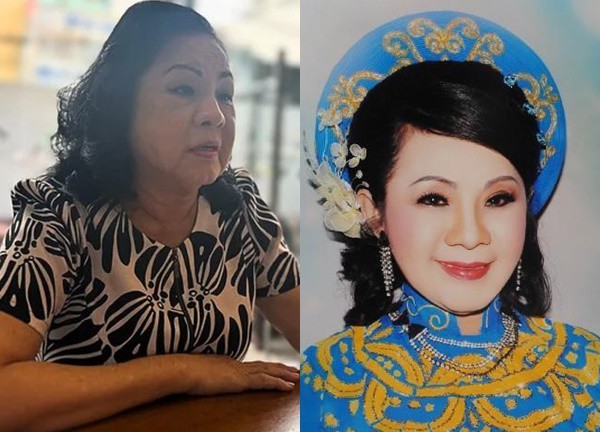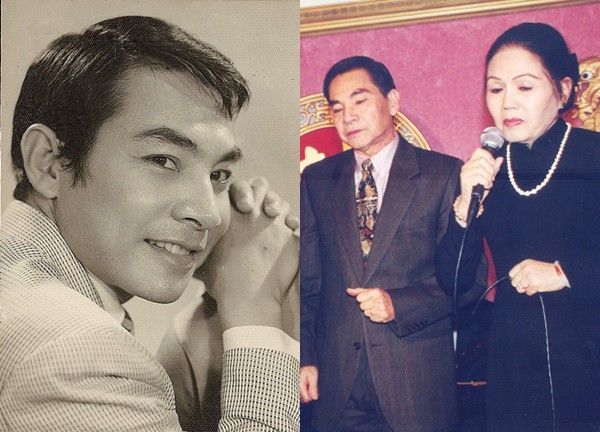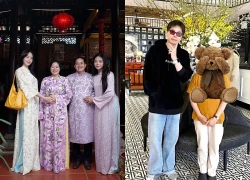Le Tham just passed away: Once a leader, her husband passed away and had to go to the NS Nursing Home

1 | 1 Discuss | Share
For the overseas Vietnamese community, Tuan Chau must be a name that is no stranger, especially for audiences who love the art of Cai Luong. Recently, he opened up about being unpopular with his wife.
Specifically, recently, at the program "House with guests", "Prince Cai Luong" Tuan Chau shared about his background: "My grandfather was Indian, married my grandmother was Vietnamese. When I was young, I lived in Cho Lon area, so I spoke Chinese, and then married my wife who was also Chinese.
Since childhood, I have been fascinated with Cai Luong and my family also has an uncle who is an artist in Saigon 2. I used to go to that group to play with my uncle, so the reform was soaked in blood.
When I was 16, I went to school for two weeks and then joined the Reform Corps, played the role of a soldier, and a few years later I was allowed to play a role, from small role to big role, from double 4 to double 3 double 2.
At the age of 19, he joined the Qingming Thanh Nga reform troupe, which was considered a young talent to promote. I've been in the profession for more than 40 years."
Next, artist Tuan Chau shared the story of love and marriage: "Until 1997, I came to the US with my wife.
I knew my wife in Vietnam and she hadn't been to the U.S. yet. At that time, I had a little fame but my wife's family was very difficult, at first refused to let her daughter marry me.
When her wife was about to go to the United States, she found out she was pregnant. I was over a year old when she came to America. At first, the wife planned to leave her child alone but sat down at the airport and could not walk, only to go to the signing room to bring both her daughter and parents with her. It wasn't until 7 years later that my wife brought me to America with her.
At the beginning of our acquaintance, despite being forbidden by my family, my wife still accepted to carry a suitcase to live with me. She was only 20 years old at the time. But I am very decent, do not have to seduce my wife and still live together monogamously until now.
I remember my wife's family coming to the troupe to meet me, while I was on stage, acting bewildered. When it came time to meet, I said, "Rest assured, from this moment on I will treat your child..." I hadn't finished my sentence when my father-in-law left, didn't look at my face, blocked the door.
By the time I came to live in America, my wife's family saw that I was decent, so I was reluctant. Men generally do it from time to time, but every time I do anything I think my wife has given up everything to follow me, then have children together, and take me to America, so I was faithful to the end.
In the process of living together, my wife and I also sometimes conflicted, angry with each other, but then made up. My wife has a way of keeping her husband especially with her eyes open, uncontrollably, as long as she doesn't know."
It can be said that, although not as popular as before, reform artists like Tuan Chau still dedicate day and night to the profession so that this subject does not disappear.
It is known that Cai Luong is a type of theater originating from the South, formed on the basis of Duo singer and folk songs in the Mekong Delta, ancient music.
Explaining the name cai luong, the late Professor Tran Van Khe said that cai luong is to modify to become better, expressed through performance stages, script themes, performing arts, orchestras and lessons. Specifically, in this art is to reform (reform, renew) the art of singing. From a verb in the usual sense, "liang" becomes a proper noun. After being renovated, the art of reform is different from the art of bumper singing in both content and form.
About the year of birth of the art of reform is still debatable. Some researchers believe that in 12/1966, the Saigon National School of Music celebrated the 50th anniversary of the establishment of Cai Luong art. This means that the reform was born in 1916
However, according to the book Vietnamese Theatre Art by Tran Van Khai - published in late 1970, Cai Luong was born in 1917. According to the late Professor Tran Van Khe, Cai Luong was born in 1918 during his doctoral thesis at the Faculty of Literature (Musicology) of Sorbonne University, France.
Since its inception, Cai Luong has always taken the content of the national liberation struggle, describing the daily life of his father as one of the important themes in the composition. At one stage, reform plays and ancient echoes became weapons of fierce struggle with the enemy, and at the same time called for awakening, the change of consciousness about the destiny of the country and the destiny of the nation.
The plays Me Linh Drum, General Nhi Kieu, Empress Dowager Duong Van Nga ... has become immortal, as well as the play Fill the Gianh River with the explosion of terror under the Ngo Dinh regime has created a great resonance beyond the pure stage, along with other movements for national agreement and reunification that have shown the boiling of the contemporary masses. Some ancient echoes are also historically significant such as Thang Long Thanh drum about the death of Governor Hoang Dieu, Yen Phi talking about Nguyen Anh's behavior of "carrying snakes to bite domestic chickens" ...
In short, despite the ups and downs, reform in general has played a very important role in preserving traditional national values, directing people towards good things. Therefore, hearing (and watching) reform at any time is meaningful to help us better understand the precious tradition of our forefathers.
"Scallop boss" Jiangzhou and his sad life: Son dies, daughter defaults, wife takes refuge  Đình Như16:05:30 03/02/2024Artist Jiangzhou is a great image of the Cai Liang stage that is known to audiences who love this art. Making the audience laugh is like that, but the late artist's personal life has many cries.
Đình Như16:05:30 03/02/2024Artist Jiangzhou is a great image of the Cai Liang stage that is known to audiences who love this art. Making the audience laugh is like that, but the late artist's personal life has many cries.

1 | 1 Discuss | Share

1 | 1 Discuss | Share

2 | 0 Discuss | Share

4 | 0 Discuss | Share

3 | 0 Discuss | Share

2 | 0 Discuss | Share

2 | 1 Discuss | Share

2 | 1 Discuss | Share

3 | 1 Discuss | Share

5 | 1 Discuss | Share

8 | 2 Discuss | Share

2 | 1 Discuss | Share










4 | 1 Discuss | Report